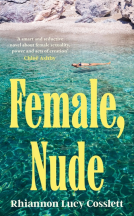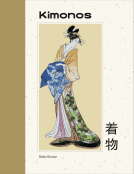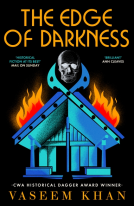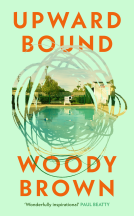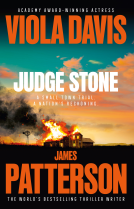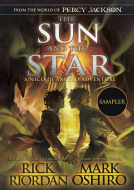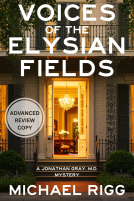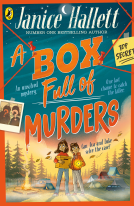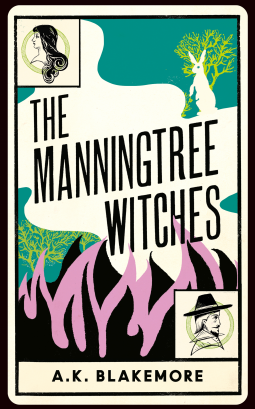
The Manningtree Witches
by A. K. Blakemore
This title was previously available on NetGalley and is now archived.
Send NetGalley books directly to your Kindle or Kindle app
1
To read on a Kindle or Kindle app, please add kindle@netgalley.com as an approved email address to receive files in your Amazon account. Click here for step-by-step instructions.
2
Also find your Kindle email address within your Amazon account, and enter it here.
Pub Date 4 Mar 2021 | Archive Date 9 Apr 2021
Talking about this book? Use #TheManningtreeWitches #NetGalley. More hashtag tips!
Description
England, 1643. Parliament is battling the King; the war between the Roundheads and the Cavaliers rages. Puritanical fervour has gripped the nation, and the hot terror of damnation burns black in every shadow.
In Manningtree, depleted of men since the wars began, the women are left to their own devices. At the margins of this diminished community are those who are barely tolerated by the affluent villagers - the old, the poor, the unmarried, the sharp-tongued. Rebecca West, daughter of the formidable Beldam West, fatherless and husbandless, chafes against the drudgery of her days, livened only by her infatuation with the clerk John Edes. But then newcomer Matthew Hopkins, a mysterious, pious figure dressed from head to toe in black, takes over The Thorn Inn and begins to ask questions about the women of the margins. When a child falls ill with a fever and starts to rave about covens and pacts, the questions take on a bladed edge.
The Manningtree Witches plunges its readers into the fever and menace of the English witch trials, where suspicion, mistrust and betrayal ran amok as the power of men went unchecked and the integrity of women went undefended. It is a visceral, thrilling book that announces a bold new talent.
Available Editions
| EDITION | Hardcover |
| ISBN | 9781783786435 |
| PRICE | £12.99 (GBP) |
Average rating from 81 members
Featured Reviews
 review b, Bookseller
review b, Bookseller
Based on true 1645 events and executions of the Manningtree 'witches'. Evoking this foul-smelling period of English history with a rich poetic lexicon the novel is dark and immersive. Devilish appearances and bewitchments of children, thrillingly witchy.
A fascinating and intriguing read - set on the Suffolk coast (and clearly recognisable - this is where I grew up) in the mid 1600s at the time of witchhunts.
Rebecca West is caught up in the troubles of the time, she and her mother, along with various other Manningtree women are declared witches, and are brought to trial - Rebecca is a beautifully crafted character, sensitive and vulnerable, yet strong and proud; the witchfinder Matthew Hopkins, is a young and troubling character whose influence is powerful.
I love the ability of AK Blakemore to dramatise history in this way - many of the characters and events are drawn from historical accounts, and to do so in a realistic, haunting and beautiful setting adds to the drama of the narrative. Stunning.
Thanks to Granta for letting me read The Manningtree Witches by A.K. Blakemore in advance! I'm actually not a big fan of reading about witch trials - it's a topic that I know interests a lot of people, but it's only held a periphery fascination for me. I basically requested this because I can't resist those big NetGalley round-up emails, and I'm pleased I read it.
The Manningtree Witches is about a real-life witch-hunting craze that swept East Anglia in the 1640s, when the government was busy during the English Civil War. It's a really interesting story, and I enjoyed how much it was contextualised by contemporaneous misogyny. This was great historical fiction, with clever writing, interesting detail, and a real rooting in a specific place and time. The narrative jumps about between narrators a fair bit, and I have to say that I felt like this decision took away from some of the story's impact for me. But otherwise I definitely enjoyed it, and it's probably one that I would like to reread, to absorb better.
 Reviewer 706075
Reviewer 706075
Based, in foundation, on the few records that are held about a group of women from Manningtree (and its surrounding villages) who were accused of witchcraft and executed for their 'crimes. A.K. Blakemore has carefully researched and poetically retold the story that led to these unjust murders, a handful of many, that happened during the East Anglian witch trials, led by Matthew Hopkins, the (self-titled) witch finder general.
Although Blakemore has re-imagined points of the history for which there aren't sufficient records, the whole novel feels like an act of vindication for these untimely deaths. The characters, bar a few, are based on real people and they are vividly drawn with all that makes them human, smells and all. We follow Becky, a young woman of twenty-one who unmarried, lives with her widowed mother; working where she can and studying letters and the bible when possible. It is a hard time to live for anyone, but women, single women, particularly. This maybe 1645 but the claustrophobic nature of suspicion and fear hold parallels to certain aspects of current society. There are questions too: what is sin? is it wickedness innate? what price are we willing to pay for freedom?
At times, the injustice that these women face is hard to bare, but the tale is richly told, the prose beautiful, even when it is telling a most horrible of stories. Reading this novel has not only made me want to seek out more of Blakemore's work; it has also made me want to look into whether a suitable memorial of the women murdered in this area (I live in Bury St Edmunds) might be possible. It astounds me really, that this is not something that is yet to be established.
 Reviewer 629472
Reviewer 629472
It is 1643; the English Civil War rages and the women are left to eke out what few resources they have.
We are transported vividly into the Essex country villages and into the lives of dirt poor Rebecca West, and her mercurial and indomitable mother, Beldam West and their neighbours. Such women are treated with suspicion and superstition which drives those in authority and those with wealth and influence.
Enter Matthew Hopkins, ‘Witchfinder’, himself devilish in black and cruelly zealous in his ‘mission’ to bring these women to ‘justice’.
Some fabulous imagery of the countryside, the light, the weather, the views, but Blakemore spares us nothing as she transports us to foul living conditions only marginally better than animals’. And viscerally to prisons where unspeakable deprivation and humiliating tortures are inflicted for months prior to hanging; one victim so light and frail she has to be pulled down.
In a refreshing ending, hopes rise for Rebecca; clever, talented and adventurous.
Thank you #NetGalley and #Granta for my digital download.
I chose to read this book as I used to live in Manningtree and the story of the witch finder general was well known and I often walked past the place the witches were hanged!
AK Blakemore has done a splendid job in the portrayal of this story. The history is there but the detail isn’t and the decision to write this novel in the view of the witches rather than the witch finder was a clever one. It is the witchfinder’s name that is remembered, not those who were wrongfully hanged, but then were they? That’s a matter of opinion...
Written in what I call ‘oldy woldy’ English it did take me a while to get into and adapt to fully understand the piece, but I found it to be a real page turner full of empathy and emotion for all characters.
As someone who knows Manningtree well there was real nostalgia for the location and being able to fully picture the places Blakemore was describing.
A very good historical novel and left me wanting to know more.
The Manningtree Witches tells the story of the first women arrested on suspicion of witchcraft by Matthew Hopkins, The Witchfinder General, who was believed to have been responsible for the killing of somewhere between 100-300 women, and some men, as witches during the mid-seventeenth century.
This novel focuses on Rebecca West, daughter of the formidable Anne Bedlam West, who is unhappy with her mother, her community and the everyday drudgery of life in a country in the height of a Civil War. With war comes famine, disease and a lack of lawfulness which is exploited by Hopkins and his ilk. With strong Puritan beliefs and influences creeping through the villagers, suspicion and hate falls to those on the outskirts of society...and that means the unmarried or widowed women, who are looked down upon for their independence, their lack of male influence and for their poverty.
Rebecca is a great character to focus on, she is a sympathetic character, but is as suspicious of her mother as others are. She is observant and an entertaining narrator and through her the reader experiences the suspicion, arrests and imprisonment of the women of Manningtree. The author doesn’t hold back in creating the world of these characters, and describes in detail the dark, dirty and impoverished way they live, as well as dropping the hints of what is to come for these women.
The story does move to Hopkins point of view on occasion. He is strongly religious and sure in his role as Witchfinder, although there are hints that his calling is more financially motivated than because of his desire to rid the world of witches. Yet this novel is not about him, it is there to give the victims a voice. It allows the women to be more than a group of condemned witches from history, it gives them complex characters and conflicts. The change of point of view, between first and third, can be a little disorienting at first, but the two viewpoints are needed to help understand the fear and motivations behind the Witchfinder’s actions.
The novel is dark and heartbreaking, with the inevitability of what is to come creating a sad feeling from the outset. This novel is very poetic and the authors uses older words and language to tell the story, which works so well to really immerse the reader into 1640s Essex. The author also uses this story to highlight just how much politics and societal changes of the day created this dangerous world for women, and how the unrest and uncertainty created by the war were a huge part in the fear of witches that swept through the country.
If you enjoy reading on the English Witch Trials, definitely pick up this book. It is a solid piece of historical fiction, and a strong debut.
 Chiara L, Reviewer
Chiara L, Reviewer
The Manningtree Witches : A dark account of the Manningtree witch trials
As I approached The Manningtree Witches, I was wondering how it would be different from other novels that fictionalize witch trials as, after all, the plot is often very similar. I can gladly say this novel did not disappoint me.
The Manningtree Witches, which relies on historical characters and records, focuses on the first victims of the massive witch hunts that swept the County of Essex during the English Civil War and claimed up to 300 lives. We are in Manningtree during the English Civil War, precisely in the period 1645-1647, and from the very start we get glimpses of the effects of war, such hunger and poverty, particularly on widowed or defenseless women. The Puritan influence in the area is strong, but as the self-appointed Witchfinder General Matthew Hopkins, a somber, pious figure dressed in black, settles in Manningtree bringing an atmosphere of menace and suspicion to the place, his search for sinfulness gives a pretext to mount accusations toward a group of women living on the fringes of society, their dirty rags and deformed bodies in sharp contrast with Puritan cleanliness and their curses, drunken “anarchic laughter” and bawdy language as their only weapon.
Most characters are wonderfully complex: from the multi-faceted Witchfinder, half-opportunist half-believer for whom sexual excitement mingles with religious zeal, to the formidable cast of women. Among these, the focus is on the young Rebecca West, who is in love with the scribbler who catechizes her and whose point of view provides the most valuable insights into this world: as she ponders her place in society, her alleged sinfulness and marginality she fully understands what counts as holy, the equation between damnation and poverty and the way witchcraft can give women a language and an identity. For this reason, the novel is also a feminist study in character development and a quest for a place in the world and a language that differs from the pattern of violence and damnation that is handed down from mother to daughter (“the violence of my mother’s tale”).
Other than giving a voice to forgotten victims, the novel also successfully exposes the mechanisms of power formation, how the social tissue is weakened as mobs are manipulated, women are scapegoated and mothers and daughter are set against each other. It captures how witch hunts intersected with the historical climate and were exploited in the wider context to uphold and consolidate Puritan values and power.
When I started to read this novel, which I did without knowing anything about the author, my very first thought was that it must be written by a poet, as the prose is wonderfully dark, immersive, rich and mesmerizing. In many chapters the sensation of threat and menace was palpable, and I felt as if I was stepping into some Dutch painting and the painting was coming alive with its vibrant details, the rays of light and sombre shadows, the putrid smells, be it public house, dingy interior, church pew, or street. The command of archaic words and the colourful expressions woven in the scintillating dialogues makes for a wonderful reading experience. A highly recommended read, dark, tense, captivating and informative.
4.5 stars
I received an ARC from Netgalley and Granta in exchange for an honest review.
 Reviewer 526728
Reviewer 526728
This was a fascinating evocation of a very interesting time in history, and one that I knew very little about. There's lots to admire in this book.
I wanted to take my time reading this as it was filled with such descriptive language that really made you felt like you were there with the accused during this time. The entire novel was highly descriptive, atmospheric and filled with eerie prose. I loved that although the book was dark and foul-smelling, the end felt light and cheerful, unlike what the characters had experienced throughout the book.
 Heather R, Reviewer
Heather R, Reviewer
My thanks to the publishers for an advanced review copy of this pungent and engrossing story of the women of Manningtree who were persecuted, tortured and murdered during the English civil war for being nothing more than poor and outspoken. It is part of an appalling atrocity too little remembered but vividly told in this book, largely by Rebecca West, the clever and clear eyed daughter of one of the women. She survived..
The women are presented as the real people they undoubtedly were with sharp and ready wits but a solidarity and essential kindliness as well. The character and possible motivations of the diseased and sadistic General Witchfinder, Matthew Hopkins, are also well presented but, happily, he is not the focus of the book.
The cruelty of the literal witch-hunt perpetrated in the 1640s would seem a far off and primitive response to social dislocation in a patriarchal society, were we not in turbulent times ourselves. Now, this vicious misogynist reprisal for the proceeds of war and social change does not seem so remote to us and Blakemore has done a great job reminding us how perilous our own future may be.
If I have criticisms, it is that the vocabulary used is sometimes unnecessarily obscure and that the narrative style does not vary between what Rebecca herself saw and reports and those things described which she could not have experienced. It is a tough read but well worth the effort. Highly recommended.
Puritanical Upheaval & Petty Grievances Spell Witch-hunt
Sharp-witted Rebecca West’s unmarried status is cause for ostracism and rumour. Along with other women living at the fringes of her community, she falls prey to wild accusations.
Set amid the religious and political upheaval of the English Civil War and based on the witch hunts of real life Witchfinder General, Matthew Hopkins, the novel gives a voice to the 300 or so women sent to their deaths for witchcraft during a three-year scourge.
And what a voice it is. Rebecca is entertaining company, at once ludic and keenly observant, and with a wonderful turn of phrase. We feel her powerlessness as the terror takes hold.
Blakemore has a staggeringly rich lexicon. This said and portmanteau words aside, some words are either so unusual as not to appear in the Oxford English Dictionary 3rd ed. (2010) (‘battologize’ meaning to repeat endlessly); are stretched to new meaning or different word class, eg. ‘patulate’ (verb) from adjective ‘patulous’; or are anachronistic, ‘flensing’ for instance, first appeared in the nineteenth century.
The use of these glorious oddities adds to the ‘upside down’ atmosphere of the period and does not detract from the evocative prose. Whether they would be in the vocabulary of a girl living in poverty during the Civil War is open to conjecture..
An assured and original debut.
My thanks to NetGalley and Granta for the ARC.
 Reviewer 632489
Reviewer 632489
The Manningtree Witches is AK Blakemore's fiction debut, and her poetry roots are obvious throughout her beautiful lyrical writing. I was talking to a friend a few days ago about the *craft* of writing, and about how in some books, you really can't see the workings of it, it's just so well done. This is one of those books, just expertly crafted, hiding all of its workings-out. Stunning, despite the brutal nature of it's subject.
Set in Essex in 1643, it centres on Rebecca West, daughter of the Beldam West, as witch-hunt fever sweeps the country, and newcomer Matthew Hopkins starts to root out the work of the Devil. Blakemore weaves in extracts from the witch trials, giving the story more weight, and acting as a reminder of the truth underneath the fiction.
FUN FACT: When I lived in Colchester (which is not very far from Manningtree), I worked at a pub that had hidden women (mostly) accused of being witches in the cellar to help them escape the witch-hunts, and it was very very haunted (as, supposedly, is lots of Colchester) 👻
Readers who liked this book also liked:
Rick Riordan; Mark Oshiro
Children's Fiction, LGBTQIA, Teens & YA

